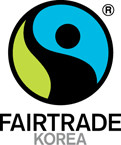- You are here :
- Home
- News
- Fairtrade News
The future of Kenyan flower producers is under threat |
|
| 2014-09-24 18:06:42 | |
The future of Kenyan flower producers is under threat Fairtrade International urgently calls for the EU and Kenyan government to find a solution which guarantees continued duty-free access for Kenyan cut flower imports, to protect the livelihoods of thousands of Kenyan flower workers and their families, before 1 October deadline. A new duty on cut flowers could have a devastating impact on Kenya's flower industry, including 32 Fairtrade certified flower farms that together employ 32,000 workers. At present, there is no duty on cut flowers exported from Kenya to Europe, but from 1 October a duty ranging from 5% - 8.5% is set to be introduced. The tariff is being imposed because, despite long-running negotiations on an Economic Partnership Agreement (EPA) since 2002, the EU and East African Community (EAC) have failed to find a way to secure a continuation of the zero tariffs for cut flowers from Kenya. Livelihoods of thousands at stake More than 500,000 people, including 90,000 direct flower employees, depend on the flower industry for their livelihoods. The cut flower industry has become Kenya’s second most important foreign exchange earner, producing exports worth almost €360 million annually. If introduced, the duty will increase the price of Kenyan cut flowers considerably, threatening farms’ ability to compete with cheaper alternatives. It could also mean potentially devastating job losses for workers in Kenya’s flower industry. The majority of these workers are women, and for many it is their only source of income to support their families. Fairtrade certified flower farms also face devastating consequences Over the past ten years Fairtrade International has worked to establish fair trading relationships between European businesses and Kenyan flower producers. 44% of all cut roses produced in Kenya now come from Fairtrade certified farms, with the EU being the chief export market. Producers have diligently built up their organizations, meeting the Fairtrade International Standards and investing the Fairtrade Premium in education, better housing, healthcare and infrastructure such as roads. Workers have benefitted from better working conditions, more knowledge about their rights and more autonomy through workers’ committees. If Fairtrade certified flower farms suffer a drastic loss of sales, or in worst case go out of business, all their hard work and achievements over the past decade would be undermined. Workers on Fairtrade certified farms could lose their jobs and their livelihood. Fairtrade International calls for swift and fair solutions Fairtrade International is calling on the EU and Kenyan government to urgently find a just and fair solution which ensures that cut flowers from Fairtrade certified farms continue to have tariff-free access to European markets, to protect the livelihoods of thousands of Kenyan flower workers and their families. Possible concerns can be expressed by sending a letter to your Head of Government, asking them to raise this issue at EU level. An example of a letter can be found and downloaded here. - See more at: http://www.fairtrade-advocacy.org/ftao-publications/newsletters/157-newsletters-articles/754-the-future-of-kenyan-flower-producers-is-under-threat#sthash.Np89HHxK.dpuf
|
|
|
|





